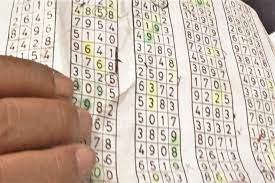Rahasia Menang Besar Bermain Togel Online
Rahasia Menang Besar Bermain Togel Online
Halo para pecinta togel online! Apakah kalian selalu gagal dalam meraih kemenangan besar saat bermain togel online? Jangan khawatir, karena kali ini saya akan membagikan rahasia menang besar bermain togel online yang bisa kalian terapkan.
Pertama-tama, penting untuk memilih situs togel online yang terpercaya dan terjamin keamanannya. Menurut pakar togel online, Bambang Suharto, “Memilih situs togel online yang terpercaya adalah langkah pertama yang harus dilakukan para pemain. Pastikan situs tersebut memiliki lisensi resmi dan reputasi yang baik.”
Selain itu, penting juga untuk memahami pola permainan togel online. Menurut ahli matematika, Dr. Siti Nurhaliza, “Menganalisis pola angka yang sering keluar dalam permainan togel online bisa membantu pemain untuk meningkatkan peluang menangnya.”
Selanjutnya, jangan lupa untuk melakukan riset dan analisis sebelum memasang taruhan. Menurut peneliti togel online, Ahmad Yani, “Riset dan analisis yang matang bisa membantu pemain untuk membuat prediksi angka yang lebih akurat.”
Selain itu, jangan terlalu terbawa emosi saat bermain togel online. Menurut psikolog, Dr. Mawar Melati, “Emosi yang tidak stabil bisa membuat pemain mengambil keputusan yang gegabah dan merugikan.”
Terakhir, tetaplah konsisten dan disiplin dalam bermain togel online. Menurut master togel online, Eko Wahyudi, “Konsistensi dan disiplin adalah kunci utama dalam meraih kemenangan besar bermain togel online. Jangan pernah menyerah meskipun mengalami kekalahan.”
Dengan menerapkan rahasia-rahasia di atas, saya yakin kalian bisa meraih kemenangan besar saat bermain togel online. Jangan lupa untuk selalu bermain dengan bijak dan bertanggung jawab. Selamat mencoba!



